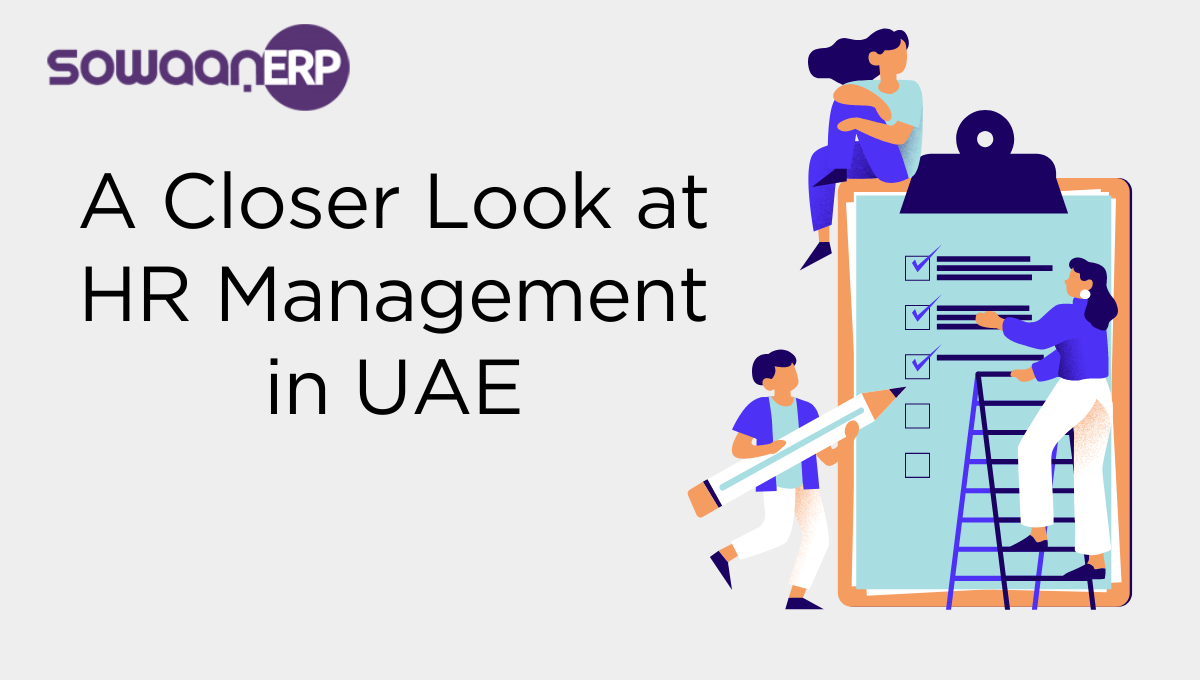Human Resource Management (HRM) is the key department of an organization. It plays a pivotal role in shaping the workforce dynamics of an organization. The United Arab Emirates is a unique blend of cultural, legal, and economic factors as it emerges as a global business hub. Understanding HR management in this dynamic landscape is essential for businesses operating in the region. The Ultimate ERP Solution in the United Arab Emirates allows HR managers to improve talent management.
Let’s look closely at HR management in the UAE and its key components, challenges, and best practices.
Cultural Considerations:
Cultural considerations shape organizational dynamics, communication patterns, and employee interactions within the workplace. Understanding and navigating cultural nuances are essential to creating an inclusive work environment.
Cultural diversity is a variety of cultural backgrounds, beliefs, values, and practices within the workplace. Organizations often comprise employees, but HR professionals must recognize and embrace this diversity.
Cultural differences influence communication styles; some cultures may prioritize direct and assertive communication. HR professionals should be mindful and adapt their communication strategies accordingly.Cultural norms and expectations also influence leadership. Leadership styles may vary based on cultural preferences. Workplace etiquette and customs may vary by organization. HR professionals should provide cultural sensitivity training for diverse customs and practices in the workplace.
The UAE is a land known for its multicultural society. HR management faces challenges as the Emirati culture values hierarchy, respect, and strong interpersonal relationships. The organizational structures and leadership must navigate cultural sensitivities to foster diversity and inclusion in the workplace. Cultural norms and traditions significantly influence communication, talent management, and employee engagement strategies.
Cultural differences can also impact conflict resolution, as some cultures may prioritize harmony. HR professionals should facilitate open dialogue regarding diverse perspectives and cultural norms.
Legal Framework:
Many laws in the UAE require a robust legal framework, including labor laws, immigration regulations, and employment contracts. There are various Labor Laws in the UAE. These include employment contracts, working hours, leave entitlements, and termination procedures. HR professionals need to stay updated with labor laws. The
Top ERP Solutions in UAE offer compliance with these laws to help avoid legal risks and penalties. The HR management must understand the sponsorship system and visa regulations for managing expatriate employees in the UAE.
Talent Acquisition and Localization:
Talent acquisition is the most crucial area of concern for the HR departments in the UAE. Businesses attract skilled professionals through recruitment agencies, job portals, and networking events. The prime goal is the participation of Emirati nationals in the workforce.
HR professionals must tackle this issue by balancing recruiting expatriate talent with promoting the Emirati workforce. A strategic workforce planning and talent development program will help HR professionals address this milestone. Innovation with Cloud-Based ERP Software in the UAE fosters connectivity.
Employee Benefits and Compensation:
Employee benefits and compensation ensure employee satisfaction and engagement. Offer comprehensive health insurance coverage for medical expenses, hospitalization, prescription drugs, and preventive care. They provide retirement savings plans that help employees save for their future financial needs. Offer matching contributions to encourage participation in these plans.
Performance-based bonuses include annual bonuses, sales commissions, profit-sharing, or recognition awards. This reward motivates employees to excel in their roles. Provide stock options or equity grants that align their interests with those of shareholders. Equity compensation retains top talent and drives performance.
HR management should design competitive compensation packages and employee benefits. This helps to attract and retain top talent. Apart from salary, there is a need to offer housing allowances, health insurance, and transportation allowances. Companies should also offer education assistance and design compensation structures to meet employee expectations and organizational objectives.
Employee Relations and Engagement:
Strong employee relations foster a positive work environment for organizational success in the UAE. HR professionals should promote employee engagement, resolve conflicts to maintain peace and ensure the satisfaction of the employees. A culture of open communication and collaboration helps maintain a brand reputation. Recognizing cultural holidays, organizing team-building activities, and enhancing employee morale and productivity.
Performance Management and Development:
Performance management and development enhance employee performance, productivity, and professional growth. It begins with setting clear employee expectations and goals and establishing SMART (Specific, Measurable, Achievable, Relevant, Time-bound) objectives. Organizational priorities and individual roles enable managers to evaluate performance effectively.
Performance management and development drive organizational success and foster a culture of continuous learning and improvement. Robust performance management processes maintain a competitive edge.
Effective performance management allows HR departments in the UAE to implement performance appraisal systems, goal-setting frameworks, and training programs. These support employee development and career progression by identifying strengths and areas for improvement.
Workforce Diversity and Inclusion:
Workforce diversity and inclusion (D&I) are fundamental principles within an organization. Embracing diversity enriches organizational culture, enhances employee engagement, and promotes organizational success.
Diversity contributes to the richness and vibrancy of the workplace.
Embracing diversity and inclusion fosters a multicultural workforce. HR professionals create an inclusive work environment for employees. They can feel valued, respected, and empowered. They are implementing diversity training programs, establishing employee resource groups, and promoting diversity and inclusion in the workplace.
Inclusion goes beyond diversity and respect for all individuals within the organization. Inclusive workplaces induce fairness, equity, and opportunities for all employees. It fosters growth but requires deliberate efforts to remove barriers, biases, and systemic inequalities.
Conclusion:
HR management in the UAE incorporates cultural, legal, and economic factors. Understanding the unique challenges and opportunities allows HR professionals to develop strategies that attract, retain, and engage top talent. The future of erp system in uae seems promising. They can foster a culture of diversity, inclusion, and innovation and drive the region’s organizational success and sustainable growth.
